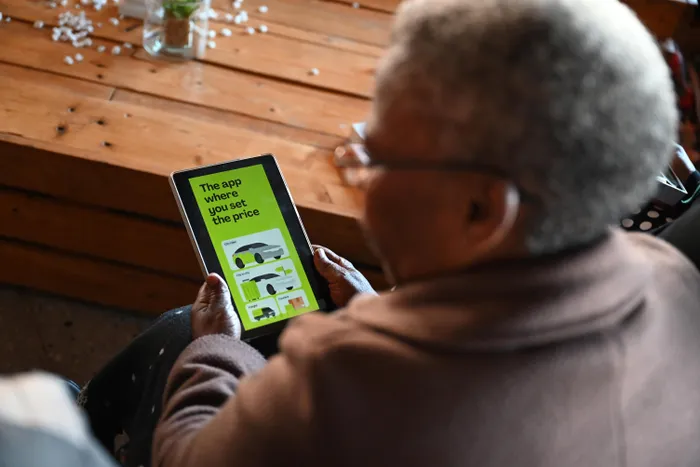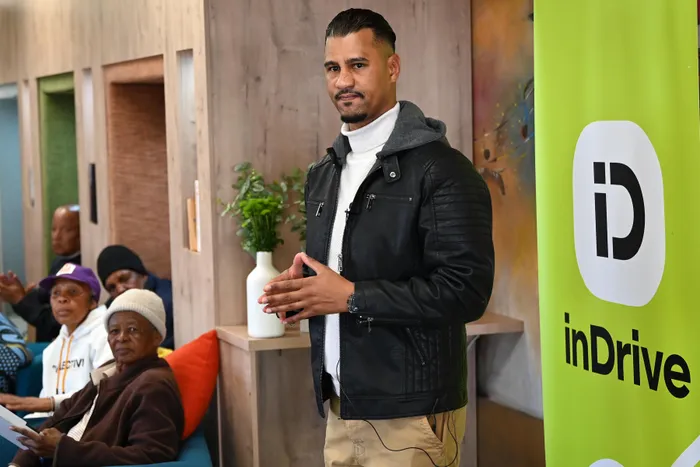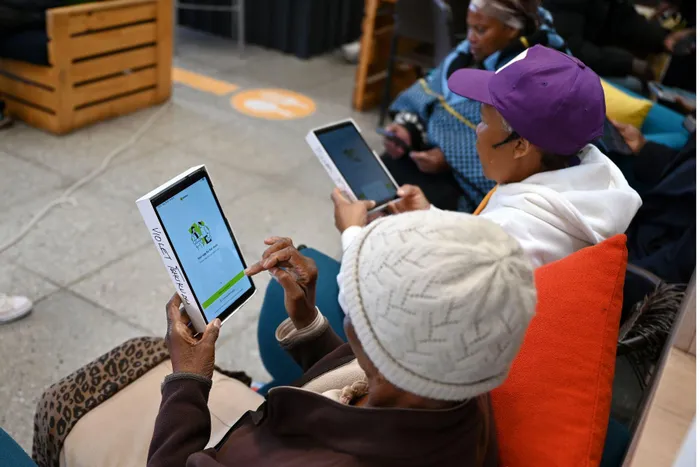
Image: Supplied
This Women’s Month, inDrive is shining a spotlight on the women who often work quietly but tirelessly to hold South African families and communities together – our gogos. These grandmothers, caregivers, and community leaders are more than just matriarchs; they are protectors, teachers, and providers. Yet, despite their critical role, many remain excluded from the digital and mobility tools that could make their daily lives safer and more independent.
Ride-hailing platform inDrive, in partnership with grassroots initiative goGOGOgo, has launched a new community-driven initiative aimed at bridging South Africa’s digital and mobility divide. The project kicks off with empowering older women (locally known as gogos) from Alexandra and surrounding communities to gain valuable, relevant digital and mobility literacy skills aimed at helping them navigate everyday life.
The event, held at Safe-Hub Alexandra on 29 July 2025, brought gogos together for a hands-on session to learn everything from smartphone navigation to ride-hailing basics via the inDrive app, skills most had never used before. This training comes amid a national reality where around four million children are being raised by grandmothers and often on a single state grant, underlining just how critical it is to equip them with tools for independence and safety.

Ashif Black, inDrive South Africa's country representative
Image: Supplied
“Gogos are the unsung heroes and clearly the backbone of our nation, and empowering them with digital and mobility skills helps to remove barriers to their movement, safety and independence,” says Ashif Black, country representative for inDrive South Africa. “We’re proud to support this initiative and to begin building skills in communities that have real impact.”
Tackling transport and tech exclusion
According to Stats SA, just 44.3% of South Africans aged 60 and older have internet access, a number that reflects a broader pattern of digital exclusion for older generations, particularly women. Mobility is another challenge, where public transport is often unsafe, inaccessible or unreliable for older users, leaving many gogos isolated or dependent on others for basic errands like grocery shopping, medical visits or collecting social grants.
“In almost every township we operate in, gogos are the ones holding families together. That being said, they’re also the ones left out when services and tech aren’t designed with them in mind,” says Jane Simmonds, founder and executive director of goGOGOgo. “This partnership gives them tools to engage on their own terms.”

Image: Supplied
inDrive’s peer-to-peer model, which allows riders and drivers to negotiate a fare and choose a preferable car and driver for the trip, offers a more flexible and approachable option for users who may be new to ride-hailing or prefer direct engagement. At the event, each gogo was supported by a trained inDrive driver, with “Gogo Champions” helping them download the app, practice booking a demo ride and understand how to stay safe when travelling.
The gogos also received starter kits, which included smartphones for some, branded blankets, and handmade bags crafted by fellow gogos as part of local income-generating activities supported by inDrive. The kits also contained comfort items to support the gogos as they continue engaging with technology and transport services.
Building a movement
This activation is the first in a planned series of empowerment days aimed at supporting older women through technology and mobility training. inDrive and goGOGOgo will host additional sessions later this year, using feedback gathered from interviews with participants to refine and expand the programme.
“As we continue to grow in South Africa, we want to make sure we’re growing responsibly and in a way that reflects the needs and realities of our communities,” says Black.